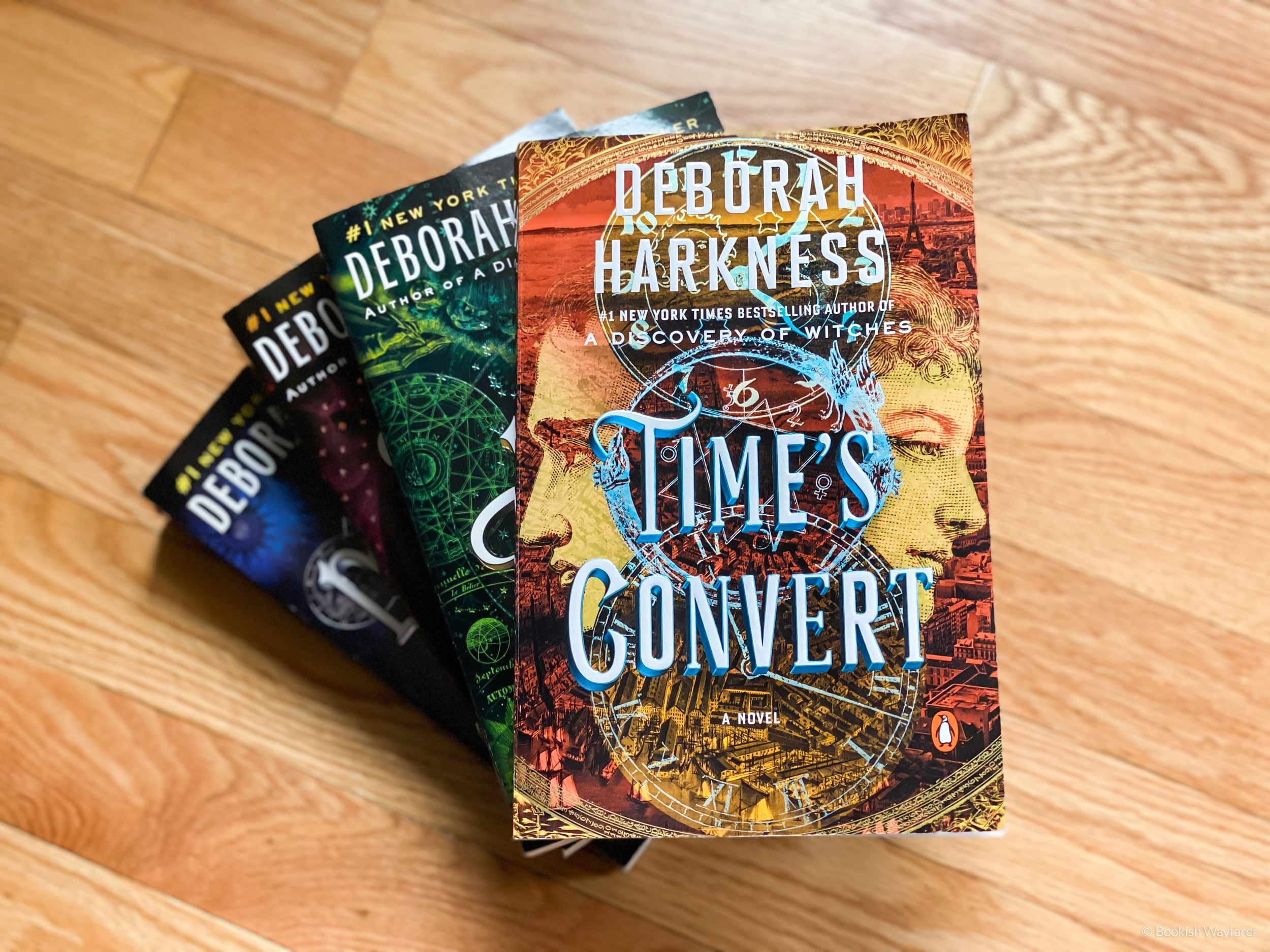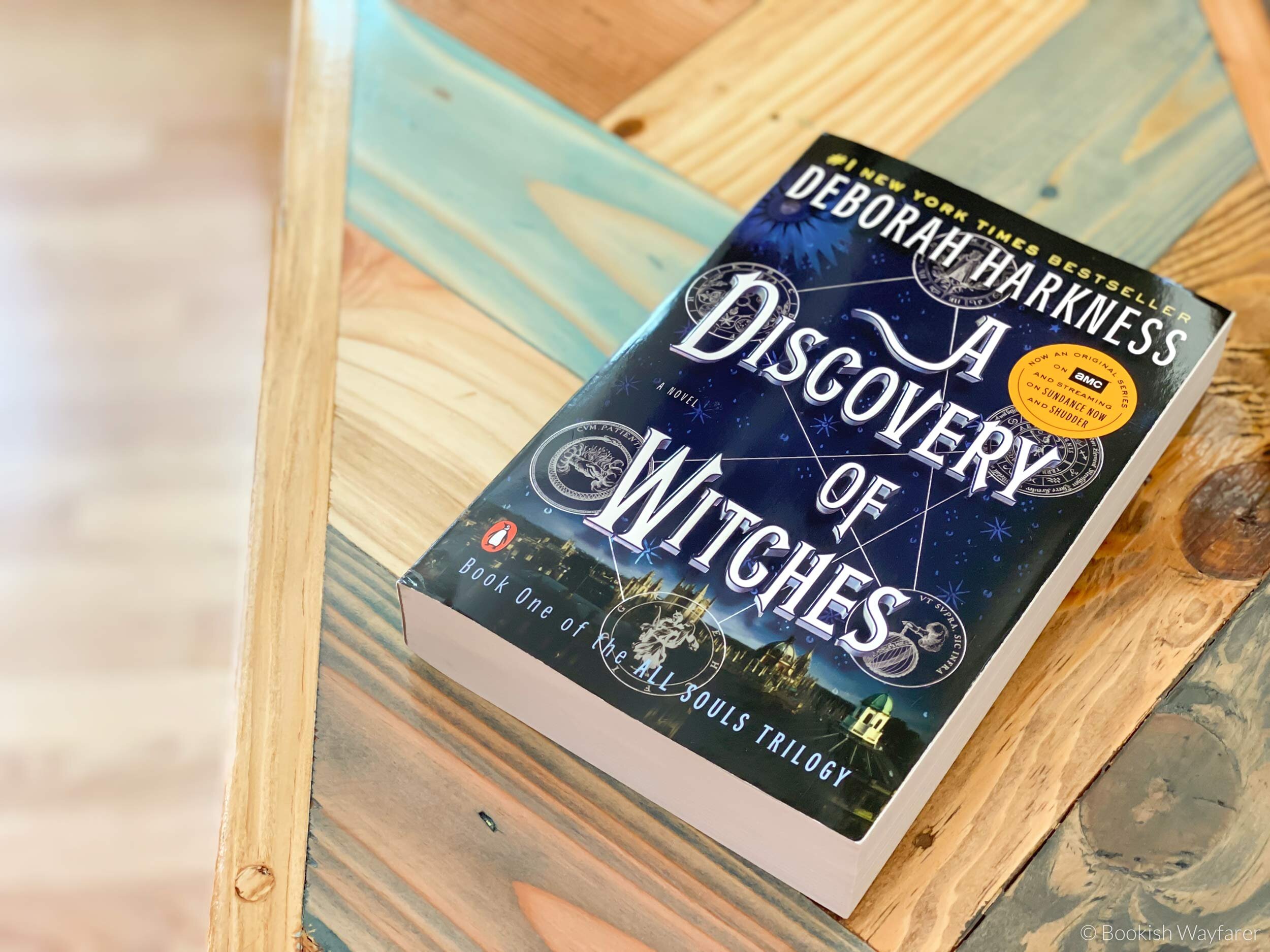Review: Shadow of Night by Deborah Harkness
“In every moment, for the rest of my life, I will be choosing you.”
Some links in this post are affiliate links, meaning I will earn a commission (at no extra cost to you) if you click through and make a purchase. For more info, please see my disclaimer.
The Basics
Title: Shadow of Night (All Souls #2)
Author: Deborah Harkness
Published: 2012
Publisher: Penguin Books
Pages: 577
Format: Paperback
Genres: Fiction — Fantasy, Paranormal, Romance, Urban fantasy, Fantasy romance, Paranormal romance, Historical fiction, Elizabethan fiction, Historical romance, Elizabethan romance, Time travel
Book Synopsis
Shadow of Night picks up right where A Discovery of Witches left off: Diana and Matthew have traveled back in time to Elizabethan England in order to hide from the Congregation. While in the past, they also hope to find a witch who can help Diana better understand the extent of her powers, and if possible, they want to track down Ashmole 782 as well. Matthew’s past and web of secrets, however, threaten to thwart their plans, and with the growing concern of witch hysteria in Britain, Diana’s safety is becoming increasingly jeopardized.
My Review & Overall Thoughts
TLDR: Overall, an enjoyable book but could benefit from less of a focus on the historical facts of 1590s England.
Shadow of Night suffers from middle book syndrome. It is by no means an unreadable book, but it is certainly the weakest of the trilogy.
The book’s greatest fault is that it at times reads like an exposé on Elizabethan England. The story frequently becomes bogged down in historical detail, particularly during the parts set in London. Diana and Matthew come to the past to learn more about Diana’s powers, as well as Ashmole 782, yet they seem to spend most of their time playing house and gallivanting around Europe. I could have done with fewer scenes of Diana doing alchemical experiments with Mary Sidney and more scenes of her doing magic lessons with Goody Alsop.
This overattention to detail and tendency to focus on minor plot points causes the book’s pace to be a tad slow at times. Compared to A Discovery of Witches, Shadow of Night is neither as engaging nor quick of a read. By the book’s end, you are more than ready to see the characters leave Tudor England and return to the present day.
The good
As I noted earlier, Shadow of Night is by no means a terrible book. It has its redeeming qualities, chief among which being its characters. In this book, we meet Matthew’s father, Philippe, and he is easily my favorite supporting character of the entire series. He is a complex individual, who beneath his shrewd, no-nonsense exterior conceals a sense of compassion and loyalty. I especially enjoyed watching the evolution of his relationship with Diana. All of the characters, while not as memorable as Philippe, are well written and boast lifelike dialogue. Character building is truly one of Harkness’ strong suits.
Another forte of hers is her ability to seamlessly weave the imagined into the factual. Through her incorporation of historical figures and events, she is able to create a believable alternate reality. Also, as much as I find the historical detail to be at times tedious, one must praise Harkness for the extensive research that she must have undertaken in order to include such a level of detail.
Lastly, I would be remiss if I did not mention the Diana-Matthew relationship. I love their relationship even more in this book, for it transforms from a romance into a true partnership. They come to fully trust and depend upon one another.
Overall
Shadow of Night, while not as enthralling as A Discovery of Witches, is still an enjoyable read.
Have you read Shadow of Night? If so, what did you think – loved it, hated it, ambivalent? Let me know in the comments section below!
-Julia
P.S. If you enjoyed this post, please consider supporting me on Buy Me a Coffee.





